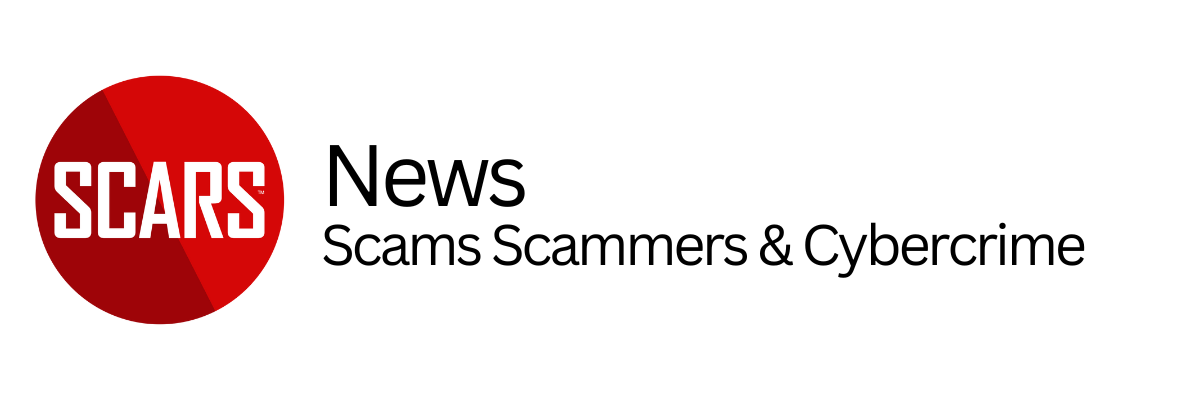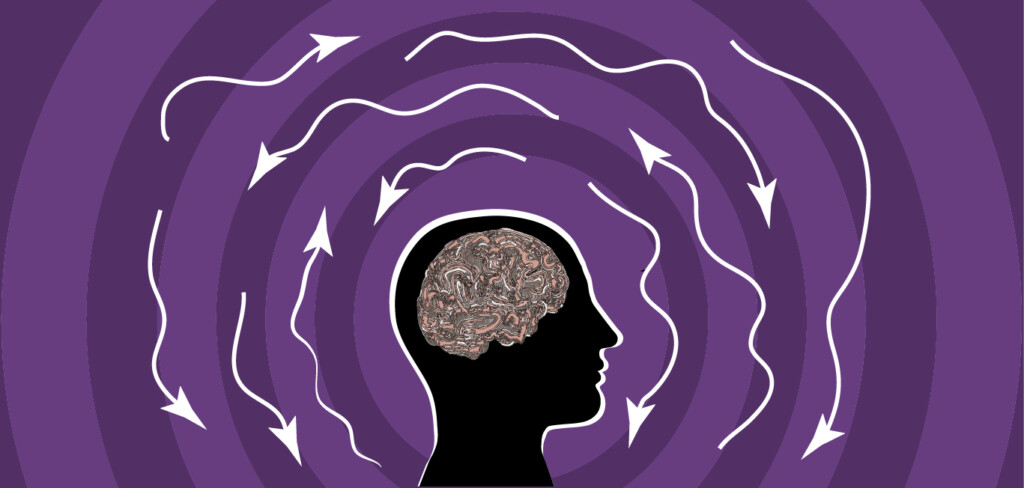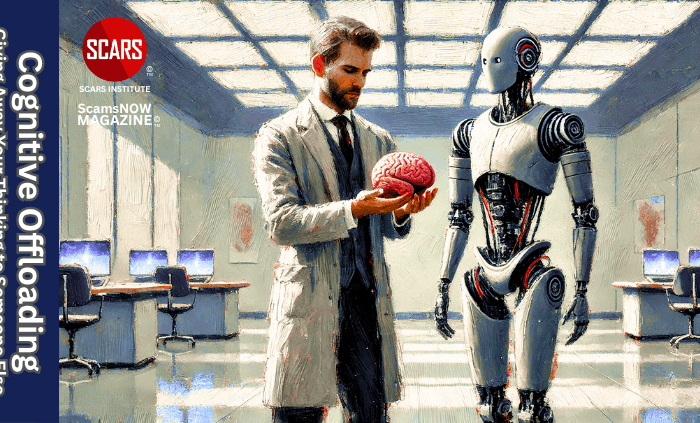North Korea Hackers are Using AI (Artificial Intelligence) for Scams
Cybercrime is Evolving Fast!
Cybercrime News
Author:
• SCARS Editorial Team – Society of Citizens Against Relationship Scams Inc.
• Portions from Financial Times
About This Article
North Korean hackers are now utilizing artificial intelligence (AI) to orchestrate more sophisticated cyber scams, leveraging platforms like LinkedIn and AI services such as ChatGPT to enhance their deceptive tactics.
This shift towards AI-driven cybercrime poses a significant challenge to cybersecurity efforts globally. By creating credible profiles and engaging targets over extended periods, hackers can execute more convincing phishing attempts and malware dissemination.
The integration of AI into cyber operations underscores the need for heightened cybersecurity measures and international collaboration to combat evolving cyber threats effectively.

North Korean Hackers Employ Artificial Intelligence in Advanced Scams
Cybercrime is evolving rapidly, with North Korean hackers now leveraging artificial intelligence (AI) to perpetrate more sophisticated scams.
These cybercriminals, backed by Pyongyang, are utilizing AI to facilitate the theft of cutting-edge technologies and to finance illicit nuclear weapons programs. Historically, their targets have included employees of global defense, cybersecurity, and cryptocurrency companies, whom they lure into revealing sensitive information or granting access to computer networks and crypto wallets through platforms like LinkedIn.
Notable incidents include the $951 million theft from Bangladesh’s central bank and the WannaCry ransomware attack on the UK’s National Health Service. Recently, it was confirmed that North Korean hackers, along with those from China, Russia, and Iran, are utilizing AI services from OpenAI and Microsoft to support malicious cyber activities. These developments underscore the growing sophistication of cyber threats and highlight the need for enhanced cybersecurity measures to mitigate such risks.
The adoption of AI by North Korean hackers presents a formidable new challenge to cybersecurity experts and law enforcement agencies worldwide. Previously, North Korean phishing and social engineering operations were hindered by the hackers’ poor grasp of colloquial English or Korean, essential for gaining the trust of their targets. However, with the integration of generative AI, these limitations are being overcome, enabling hackers to create more credible profiles on professional networking sites like LinkedIn. By leveraging AI for chatting, messaging, image creation, and identity fabrication, hackers can build relationships with targets over weeks or months, enhancing the effectiveness of their schemes.
One instance cited by experts involved North Korean hackers posing as recruiters for a cryptocurrency exchange in Singapore on LinkedIn, targeting a senior engineer at a Japanese cryptocurrency exchange. By engaging the engineer in a technical exercise that involved downloading software, the hackers infected it with North Korean spyware. Such attacks highlight the increasing sophistication and deception employed by cybercriminals.
Moreover, AI services like ChatGPT not only aid in developing more advanced forms of malware but also enable hackers to create more convincing phishing attempts on platforms like Facebook, WhatsApp, Telegram, and Discord. While safeguards exist within these services to prevent malicious use, cybercriminals have found ways to circumvent them, including accessing Chinese AI services.
Pyongyang’s pursuit of AI capabilities for cyber operations aligns with its broader strategy of enhancing its cyber capabilities to support its nuclear ambitions. Academic papers published in North Korean scientific journals, often in collaboration with Chinese scholars affiliated with military institutions, provide insights into Pyongyang’s focus on AI applications for warfare simulations and nuclear reactor operations.
Despite the embryonic nature of North Korean AI systems, their potential impact on cybersecurity and international security is significant. As such, the international community must remain vigilant and proactive in countering cyber threats posed by state-sponsored actors like North Korea. Enhanced cooperation among governments, cybersecurity firms, and technology companies is crucial to effectively combatting the evolving landscape of cybercrime and safeguarding global security.
Learn more: North Korean hackers use AI for more sophisticated scams (ft.com)
Please Rate This Article
Please Leave Us Your Comment
Also, tell us of any topics we might have missed.
Thank you for your comment. You may receive an email to follow up. We never share your data with marketers.
-/ 30 /-
What do you think about this?
Please share your thoughts in a comment above!
-/ 30 /-
What do you think about this?
Please share your thoughts in a comment above!
SCARS LINKS: AgainstScams.org RomanceScamsNOW.com ContraEstafas.org ScammerPhotos.com Anyscam.com ScamsNOW.com
reporting.AgainstScams.org support.AgainstScams.org membership.AgainstScams.org donate.AgainstScams.org shop.AgainstScams.org
youtube.AgainstScams.org linkedin.AgainstScams.org facebook.AgainstScams.org
ARTICLE RATING
TABLE OF CONTENTS
CATEGORIES
MOST POPULAR COMMENTED ARTICLES
POPULAR ARTICLES
U.S. & Canada Suicide Lifeline 988
![NavyLogo@4x-81[1]](https://scamsnow.com/wp-content/uploads/2025/04/NavyLogo@4x-811.png)
ARTICLE META
WHAT PEOPLE ARE TALKING ABOUT LATEST SITE COMMENTS
See Comments for this Article at the Bottom of the Page
on The Uniqueness Of Scam Victims Or Fraud Victims – 2024: “Really informative” Jun 28, 08:58
on Samurai Wisdom and Rituals for Clearing the Mind After Scam Trauma – 2025 – [VIDEOS]: “A great guide on how to move forward in our recovery process with a calm mind, cleansed on an ongoing…” Jun 28, 07:34
on Delayed Gratification and Patience in Scam Victim Recovery – 2025 – [VIDEOS]: “We want to recover quickly and… we make new mistakes. How not to speed up the recovery process, how to…” Jun 28, 06:41
on The Unique Injury Of Betrayal Trauma On Scam Victims – 2024: “Primarily because you did not see it coming” Jun 27, 23:57
on Changes In A Scam Victim’s Life: “I really detest the way my trust in others has been affected by the scamming I went through. I used…” Jun 27, 14:47
on The Unique Injury Of Betrayal Trauma On Scam Victims – 2024: “Betrayal Trauma is the worst feeling ever. Why does it seem so much worse when a scammer does that to…” Jun 27, 14:34
on EMDR Therapy For Scam Victims’ Trauma – A Part Of The Recovery Process For Many – 2024: “Very comprehensive article explaining all aspects of EMDR. I’d only heard of it before and now I have a much…” Jun 26, 19:01
on Forgiving Yourself After Surviving a Romance or Investment Scam – 2025: “Thank you for this valuable article. Self-forgiveness was for me the biggest step that led to my recovery. That also…” Jun 26, 17:28
on Counseling And Your Native Language: “These points make perfect sense. I can’t imagine trying to express complex emotions in a second language. I realize many…” Jun 26, 16:05
on Thought-Terminating Cliches – How What You and Others Say Stops Critical Thinking and Recovery for Scam Victims – 2025: “I didn’t realize that these “innocent phrases” clichés ending thoughts, can have such effect / negative -inhibiting / on our…” Jun 26, 14:48
on Scam Victim Resistance In Support Groups Therapy Or Counseling Can Destroy Opportunities For Recovery – 2024: “Working with either a support group or therapist to me means a self commitment to actively participating in the therapy.…” Jun 24, 21:01
on ‘I Just Want To Forget It’ – Denial & Avoidance Are Natural But Will Not Help Scam Victims On Their Path To Recovery From Scams – 2024: “My financial loss, the shock and betrayal of the crime ending all combined to fray my nerves and spend hours…” Jun 24, 20:10
on You Hate Being Told What To Do? How Your Rebellious Mentality Can Sabotage Your Recovery – 2025: “I am a bit of a rebel, and the moment someone tells me to do something, worse, does it even…” Jun 24, 15:04
on You Hate Being Told What To Do? How Your Rebellious Mentality Can Sabotage Your Recovery – 2025: “You are very welcome” Jun 24, 03:01
on You Hate Being Told What To Do? How Your Rebellious Mentality Can Sabotage Your Recovery – 2025: “This is a great article, which makes perfect sense as to why anyone would resist the help offered to them.…” Jun 23, 20:01
on Scam Victims’ Responsibilities – 2021 [Updated 2025]: “Thank you for this article. As I continue my journey, I focus on the here and now and let the…” Jun 21, 16:26
on Scam Victims Avoid Or Escape The Aftermath Of Scams – How Denial And Distraction Avoid Confronting Reality – 2024: “In the earliest days after my crime I felt powerless, helpless and weak. I had been through so much in…” Jun 21, 14:46
on Problems and Opportunities – Thoughts on Psychological Reframing – 2025: “An article that really helped me look at the problems in my life from a different point of view and…” Jun 21, 14:42
on Scam Victims Avoid Or Escape The Aftermath Of Scams – How Denial And Distraction Avoid Confronting Reality – 2024: “Thank you for another great article! This discussion of avoidance and other tactics some can use to deny the existence…” Jun 17, 12:20
on Helping Scam Victims Understand The Social Isolation Risks After A Relationship Scam – 2024: “This article very informatively shows the risk of social isolation especially after a scam. Although I can acknowledge the list…” Jun 17, 11:31
Important Information for New Scam Victims
Please visit www.ScamVictimsSupport.org – a SCARS Website for New Scam Victims & Sextortion Victims
SCARS Institute now offers a free recovery program at www.SCARSeducation.org
Please visit www.ScamPsychology.org – to more fully understand the psychological concepts involved in scams and scam victim recovery
If you are looking for local trauma counselors, please visit counseling.AgainstScams.org
If you need to speak with someone now, you can dial 988 or find phone numbers for crisis hotlines all around the world here: www.opencounseling.com/suicide-hotlines
Statement About Victim Blaming
Some of our articles discuss various aspects of victims. This is both about better understanding victims (the science of victimology) and their behaviors and psychology. This helps us to educate victims/survivors about why these crimes happened and not to blame themselves, better develop recovery programs, and help victims avoid scams in the future. At times, this may sound like blaming the victim, but it does not blame scam victims; we are simply explaining the hows and whys of the experience victims have.
These articles, about the Psychology of Scams or Victim Psychology – meaning that all humans have psychological or cognitive characteristics in common that can either be exploited or work against us – help us all to understand the unique challenges victims face before, during, and after scams, fraud, or cybercrimes. These sometimes talk about some of the vulnerabilities the scammers exploit. Victims rarely have control of them or are even aware of them, until something like a scam happens, and then they can learn how their mind works and how to overcome these mechanisms.
Articles like these help victims and others understand these processes and how to help prevent them from being exploited again or to help them recover more easily by understanding their post-scam behaviors. Learn more about the Psychology of Scams at www.ScamPsychology.org
SCARS INSTITUTE RESOURCES:
If You Have Been Victimized By A Scam Or Cybercrime
♦ If you are a victim of scams, go to www.ScamVictimsSupport.org for real knowledge and help
♦ Enroll in SCARS Scam Survivor’s School now at www.SCARSeducation.org
♦ To report criminals, visit https://reporting.AgainstScams.org – we will NEVER give your data to money recovery companies like some do!
♦ Follow us and find our podcasts, webinars, and helpful videos on YouTube: https://www.youtube.com/@RomancescamsNowcom
♦ Learn about the Psychology of Scams at www.ScamPsychology.org
♦ Dig deeper into the reality of scams, fraud, and cybercrime at www.ScamsNOW.com and www.RomanceScamsNOW.com
♦ Scam Survivor’s Stories: www.ScamSurvivorStories.org
♦ For Scam Victim Advocates visit www.ScamVictimsAdvocates.org
♦ See more scammer photos on www.ScammerPhotos.com
You can also find the SCARS Institute on Facebook, Instagram, X, LinkedIn, and TruthSocial
Psychology Disclaimer:
All articles about psychology and the human brain on this website are for information & education only
The information provided in this and other SCARS articles are intended for educational and self-help purposes only and should not be construed as a substitute for professional therapy or counseling.
Note about Mindfulness: Mindfulness practices have the potential to create psychological distress for some individuals. Please consult a mental health professional or experienced meditation instructor for guidance should you encounter difficulties.
While any self-help techniques outlined herein may be beneficial for scam victims seeking to recover from their experience and move towards recovery, it is important to consult with a qualified mental health professional before initiating any course of action. Each individual’s experience and needs are unique, and what works for one person may not be suitable for another.
Additionally, any approach may not be appropriate for individuals with certain pre-existing mental health conditions or trauma histories. It is advisable to seek guidance from a licensed therapist or counselor who can provide personalized support, guidance, and treatment tailored to your specific needs.
If you are experiencing significant distress or emotional difficulties related to a scam or other traumatic event, please consult your doctor or mental health provider for appropriate care and support.
Also read our SCARS Institute Statement about Professional Care for Scam Victims – click here
If you are in crisis, feeling desperate, or in despair, please call 988 or your local crisis hotline.
More ScamsNOW.com Articles
A Question of Trust
At the SCARS Institute, we invite you to do your own research on the topics we speak about and publish. Our team investigates the subject being discussed, especially when it comes to understanding the scam victims-survivors’ experience. You can do Google searches, but in many cases, you will have to wade through scientific papers and studies. However, remember that biases and perspectives matter and influence the outcome. Regardless, we encourage you to explore these topics as thoroughly as you can for your own awareness.














![scars-institute[1]](https://scamsnow.com/wp-content/uploads/2025/04/scars-institute1.png)
![niprc1.png1_-150×1501-1[1]](https://scamsnow.com/wp-content/uploads/2025/04/niprc1.png1_-150x1501-11.webp)

Leave a Reply